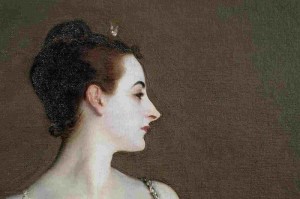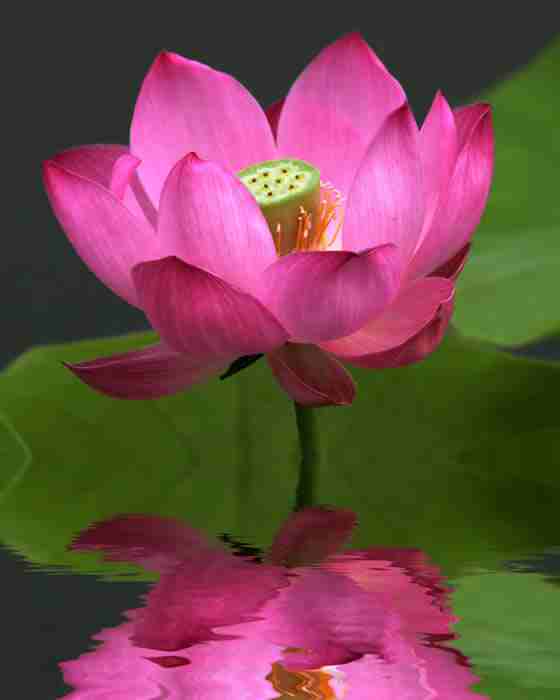 I reread Leo Tolstoy’s masterpiece Anna Karenina a little over a month ago. The novel is a marvel; Tolstoy imbues even minor characters with complex motivations, thoughts and feelings. He gives each of them moments of dignity and compassion while being clear-eyed about their failings. The world he creates is incredibly complete and covers every aspect of Russian life for the class of people he writes about. Despite my enjoyment the second time around, in the weeks that have passed, I’ve been haunted by Anna — I can’t get her out of my head.
I reread Leo Tolstoy’s masterpiece Anna Karenina a little over a month ago. The novel is a marvel; Tolstoy imbues even minor characters with complex motivations, thoughts and feelings. He gives each of them moments of dignity and compassion while being clear-eyed about their failings. The world he creates is incredibly complete and covers every aspect of Russian life for the class of people he writes about. Despite my enjoyment the second time around, in the weeks that have passed, I’ve been haunted by Anna — I can’t get her out of my head.
Almost every man and woman who encounters Anna falls a little in love with her. She is not simply a great beauty, but a woman whose energy and charisma leap off the page; she is witty, smart, passionate and generous, but she is also terribly frustrating. Even as a reader who delights in complex characters, I found myself wanting to put Anna in the ‘good’ category: perhaps a vestige of a dualistic worldview where I can’t help making a hero of such a compelling character. However, Tolstoy gives simplistic notions of character no quarter and I found myself continuing to love Anna while I was simultaneously disappointed by her behavior — leaving her son, her indifference to her daughter, and her love for Count Vronsky, who never seems quite her equal.
I wasn’t disappointed by Anna’s decisions because I thought they were ‘bad’, Tolstoy is careful to create a great deal of sympathy and understanding for Anna and her choices; more than anything I felt frustrated because Anna is not just smart, but seems so self-aware. She sees herself being irrational, immoral, picking a fight, being noble, coquettish or genuine — she sees it all so clearly that it is hard to watch her make choices that seem the exact opposite of what she wants (and, admittedly, hard to shake the knowledge that Anna might have been given a different fate as a man). As the novel goes on, Anna develops a strange habit of “narrowing her eyes as if peering at something in the distance” which another character suspects she does “in order not to see (her life) at all.” She becomes increasingly fragmented, divided from herself and what she wants; yet, she is aware, long before Vronsky, of her status in society, his waning affection and that she will not be able to live without her son. Even as she hurtles towards her death, the reader is given an astonishing glimpse into her head, which shows, despite her narrowed eyes, that her sense of humor and unique clarity is still intact. It makes her suicide even more devastating and unsettling.
When I first read Anna Karenina, around the time I was 17, I believed that Anna was simply mired in her ‘natural man’ and could have avoided death and ruin if only she could have risen above her sins: left Vronsky and found a way to continue being a good mother. She would be ruined, but pure. Now, I have great compassion for her predicament. I see how damaging it was to her soul to be divided, so limited in her choices and roles.
Anna’s spiritual crisis is paralleled by Konstantin Dmitrich Levin’s, the novel’s other protagonist. Throughout the novel, Levin struggles with questions of goodness, duty, religion, materialism and the existence of God. As Anna moves towards a more compartmentalized, damaged life, Levin moves towards wholeness; he learns to love and finds happiness, despite his great fear of death. This move towards wholeness culminates in a spiritual moment where Levin realizes that he believes in God. After being touched by the divine, Levin goes home, believing that he has been saved and his whole life will be different, only to find that he is still easily annoyed, flawed: still himself. In the final paragraphs, Levin has his true epiphany:
“This new feeling hasn’t changed me, hasn’t made me happy or suddenly enlightened, as I dreamed — just like the feeling for my son. Nor was there any surprise. And faith or not faith — I don’t know what it is — but this feeling has entered into me just as imperceptibly through suffering and lodged itself in my soul. I’ll get angry in the same way with the coachman Ivan, argue in the same way, speak my mind inappropriately, there will be the same wall between my soul’s holy of holies and other people, even my wife, I’ll accuse her in the same way of my own fear and then regret it, I’ll fail in the same way to understand with my reason why I pray, and yet I will pray — but my life now, my whole life, regardless of all that may happen to me, every minute of it, is not only not meaningless, as it was before, but has the unquestionable meaning of the good which it is in my power to put into it!”
Psychologist and meditation teacher Jack Kornfield wrote, “True spirituality is not a defense against the uncertainties, pain and danger in life, not an ‘an inoculation,’ as Joseph Campbell called popular religion, to avoid the unknown. It is an opening to the entire mysterious process of life.” Kornfield goes on:
“We fragment our life and divide ourselves from it when we hold to ideals of perfection … The purity that we long for is not found in perfecting the world. True purity is found in the heart that can touch all things, enfold all things, and include all things in its compassion. The greatness of our love grows not by what we know, not be what we have become, not by what we have fixed in ourselves, but in our capacity to love and be free in the midst of all life.”
In that moment, Levin moves towards this kind of love and wholeness, a life that integrates his conscience with his spiritual epiphanies and the realities of daily living, a work I believe we all share. As I’ve thought about Mel this week and questions of loyalty, dissension and individual conscience, I have been left with this feeling that we cannot fragment ourselves or compartmentalize our conscience from our spiritual practices, they are all part of a whole. Like Anna, like Levin, we will be deeply flawed, imperfect: but we can be awake.


Heidi, I’m glad you returned to this novel. I wish I had written this.
Thank you Ed, I consider that high praise.
Beautiful observations. I am still surprised by my inclinations to categorize and simplify things by placing them in the “good” and “bad” category. Those categories get more sophisticated, but I find that inevitably my mind brings me into judgment and classification whenever I stop paying attention. I so relate to your experience of reading Anna Karenina and having a whole new perspective on the story.
I love Jack Kornfield’s definition of purity. “”We fragment our life and divide ourselves from it when we hold to ideals of perfection” – is something I’ve found to be absolutely real.
Laurie, I fool myself that because I come to most people and situations with a nuanced view, I am not dividing them into simple categories, but there is still that impulse. The interesting thing about that is when I bring attention to that impulse, I see that what I am really deciding is what is worth my love or esteem, which, in turn, is revealing about how I believe I must earn love by being more “good” than “bad.”
I love how you put that Laurie. As my categories get more sophisticated I certainly notice that what I am used to doing doesn’t work anymore.
When I read AK I was still in an LDS belief mode, so I related to what you wrote Heidi about judging Anna for her sins in a black and white way. Now I need to reread the book with a new perspective and see what comes of it.
I loved reading this, Heidi. I’ve had Anna Karenina on my shelf for years now, waiting for my chance to read it. I’ll want to give it the time and consideration it deserves.
I found your post illuminating, despite my ignorance of the text. I’m really interested in what you had to say about compartmentalisation/fragmentation and wholeness. To be able to ‘let go’ of our barriers and defences: to be able to love freely and generously… to be able to speak our hearts and minds bravely and at the right time… these are all things I know I want, and deep down, I know I can have them as soon as I’m ready to have what a believe can be ‘a mighty change of heart’.
And yet, at the same time, I know that this opening (like a flower) is the work of a lifetime. Even as I’m ready to speak, or sing, or dance, I feel my fear tugging on my spirit. Sometimes it feels like I take flight a little, and I’m in heaven. Other times I back away, and feel ashamed.
Mel did the right thing this week, you’re right. And I feel honoured to be associated with all of the readers and contributors on D&S. As I hear the hundreds of voices in this place, I feel sure we’re practising together, to ‘include all things in [our] compassion’.
Andy and Gail, it is well worth taking the time to read.
Kornfield says that our spiritual journeys are not linear, but tend to go in cycles, cycles of growth and expansion and times where we need to retreat and regroup before we are ready to open in new ways.
I think this is true creatively as well. Whenever I read about artists, I am struck by the times of depression or lack of inspiration that each artist seems to endure. I have come to think of these fallow times as necessary for our development.
Well done, Heidi. My copy of Anna is as well-underlined and -highlighted as my old missionary scriptures. Have you read other Tolstoy?
Matt, I’ve never tackled War and Peace, but I have read The Death of Ivan Ilyich (which is remarkable) a number of times and some selections from What is Art? You?
Great review, Heidi. I will be looking up the title in my local library and hoping that it is on books on tape.
Anna Karenina marked my adult life.I read it when I was in high school and the thoughts of Tolstoy’s complete words were carried with me until I got my visa and went to Russia. It was an extraordinary feeling to re-leave the moments from the book (without the tragic ending of course).
I’ve always had fantasies about going to Russia. Were you there for travel? Work? Mission? I went to Prague last year and learned there is a train that goes from Prague to St. Petersburg and the knowledge has been haunting me ever since. :)
I’ve been reading Anna Karenina for almost 9 years – I’m almost done. :)
I love all of Tolstoy’s books and, after reading any of them, I find myself on a Russian jag. I know it sounds snobbish, but my favorite of his really is War and Peace (although my my most favorite books of all time are much shorter).